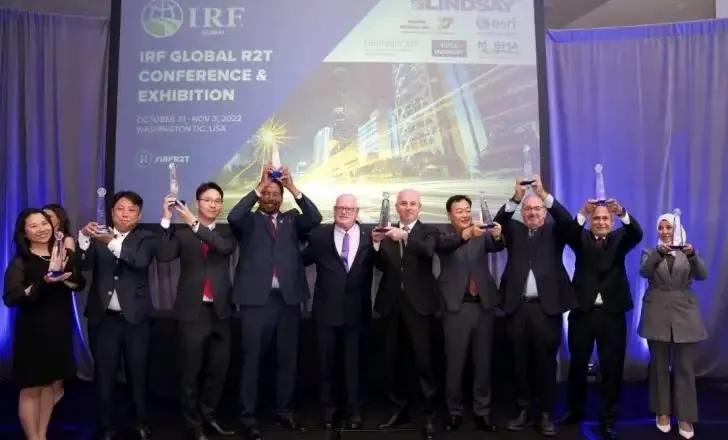The three-year NODES (New Tools for the Design and Operation of Urban Transport Interchanges) project has came to a close and the project findings are said to offer transport practitioners practical steps to build better interchanges.
Co-funded by the Seventh Framework Programme and co-ordinated by International Association of Public Transport (UITP), NODES brings together 17 partners representing local government administrations, public transport operators, as well as research centres and European assoc
September 24, 2015
Read time: 2 mins
The three-year NODES (New Tools for the Design and Operation of Urban Transport Interchanges) project has came to a close and the project findings are said to offer transport practitioners practical steps to build better interchanges.
Co-funded by the Seventh Framework Programme and co-ordinated by3833 International Association of Public Transport (UITP), NODES brings together 17 partners representing local government administrations, public transport operators, as well as research centres and European associations.
Interchanges play a key role in the integration of urban mobility systems and allowing smooth connections between different transport modes. The key achievements of the NODES project were the development of a toolbox to help practitioners assess and benchmark the performance of their interchange as well as to take practical steps to increase performance. The Toolbox focuses on five key areas: land use and infrastructure; design; intermodality and ICT; management and business models; and energy and environment.
In practical terms, practitioners can more easily identify the design needs and facility requirements in an interchange thanks to the Typology Diagrammatic Representation tool. Another tool includes practical steps that can be taken to improve the experience of users in an interchange (the ‘station experience monitor), developed by Nederlandse Spoorwegen and tested in nine NODES test sites.
The aim of the research project was to help European cities in the design or operation of new or upgraded interchanges in order to boost user satisfaction. The Toolbox was tested in real conditions in nine European sites, all of which were undergoing substantial development and upgrading: Reading, Birmingham, Rouen, Toulouse, Osnabrück, Budapest, Rome, Thessaloniki, and Rotterdam, Utrecht and ‘s-Hertogenbosch (as one site).
UITP Secretary General Alain Flausch said: “By providing practical steps to improve stations, the NODES project makes an essential contribution towards a more enjoyable public transport experience”.
Co-funded by the Seventh Framework Programme and co-ordinated by
Interchanges play a key role in the integration of urban mobility systems and allowing smooth connections between different transport modes. The key achievements of the NODES project were the development of a toolbox to help practitioners assess and benchmark the performance of their interchange as well as to take practical steps to increase performance. The Toolbox focuses on five key areas: land use and infrastructure; design; intermodality and ICT; management and business models; and energy and environment.
In practical terms, practitioners can more easily identify the design needs and facility requirements in an interchange thanks to the Typology Diagrammatic Representation tool. Another tool includes practical steps that can be taken to improve the experience of users in an interchange (the ‘station experience monitor), developed by Nederlandse Spoorwegen and tested in nine NODES test sites.
The aim of the research project was to help European cities in the design or operation of new or upgraded interchanges in order to boost user satisfaction. The Toolbox was tested in real conditions in nine European sites, all of which were undergoing substantial development and upgrading: Reading, Birmingham, Rouen, Toulouse, Osnabrück, Budapest, Rome, Thessaloniki, and Rotterdam, Utrecht and ‘s-Hertogenbosch (as one site).
UITP Secretary General Alain Flausch said: “By providing practical steps to improve stations, the NODES project makes an essential contribution towards a more enjoyable public transport experience”.








